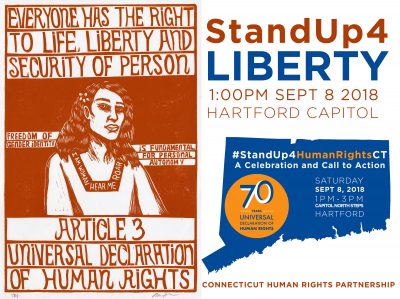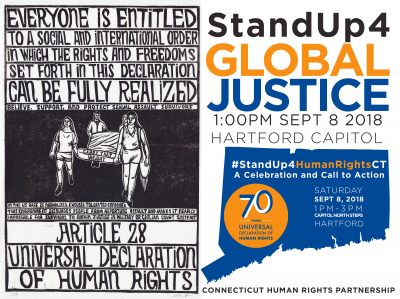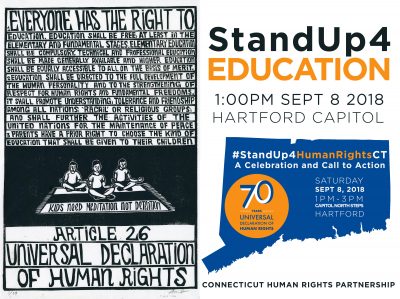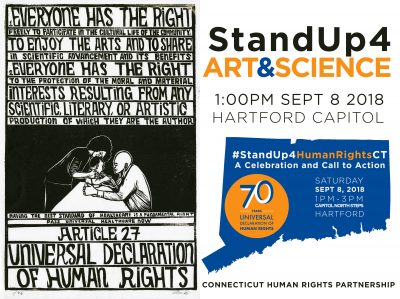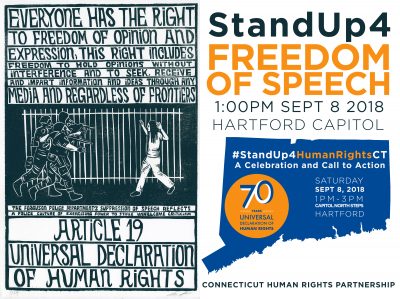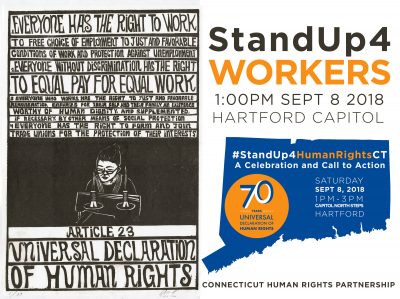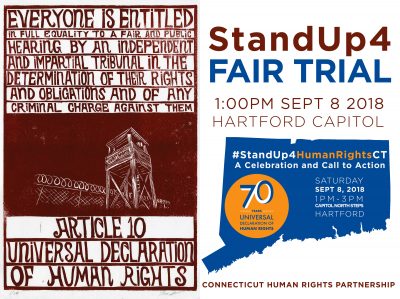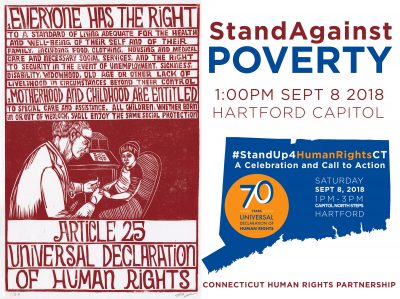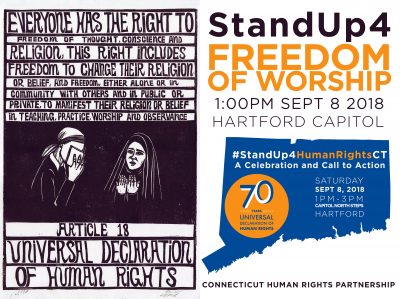
Welcome to Day 10 of the countdown to the #StandUp4HumanRightsCT rally on September 8. Today’s post will highlight Article 16, which focuses on the right to marry and have a family.
The article reads: “(1) Men and women of full age, without any limitation due to race, nationality or religion, have the right to marry and to found a family. They are entitled to equal rights as to marriage, during marriage and at its dissolution. (2) Marriage shall be entered into only with the free and full consent of the intending spouses. (3) The family is the natural and fundamental group unit of society and is entitled to protection by society and the State.”
This crucial article of the Universal Declaration of Human Rights protects against forced marriage and child marriage, both of which are still prevalent practices in the Global South. The International Center for Research on Women reports that one third of girls living in the developing world are married before the age of 18, and one in nine are married before the age of 15. Current numbers have led to a projected 150 million girls under the age of eighteen being married throughout the next decade. Girls living in poverty and with lower levels of formal education are disproportionately impacted by this phenomenon; studies indicate that, in some countries, 60 percent of girls with no education are married by age 18, whereas only 1% of those with higher levels of education reported the same.
How can you use your voice and platform to fight the ever-present practices of forced and child marriage around the world? In what ways can your community affect change in this way?
—
Please #repost & click “GOING” on our Facebook event: https://www.facebook.com/events/1837109232994042/
Check out our full blog at: standup4humanrightsct.org/blog
